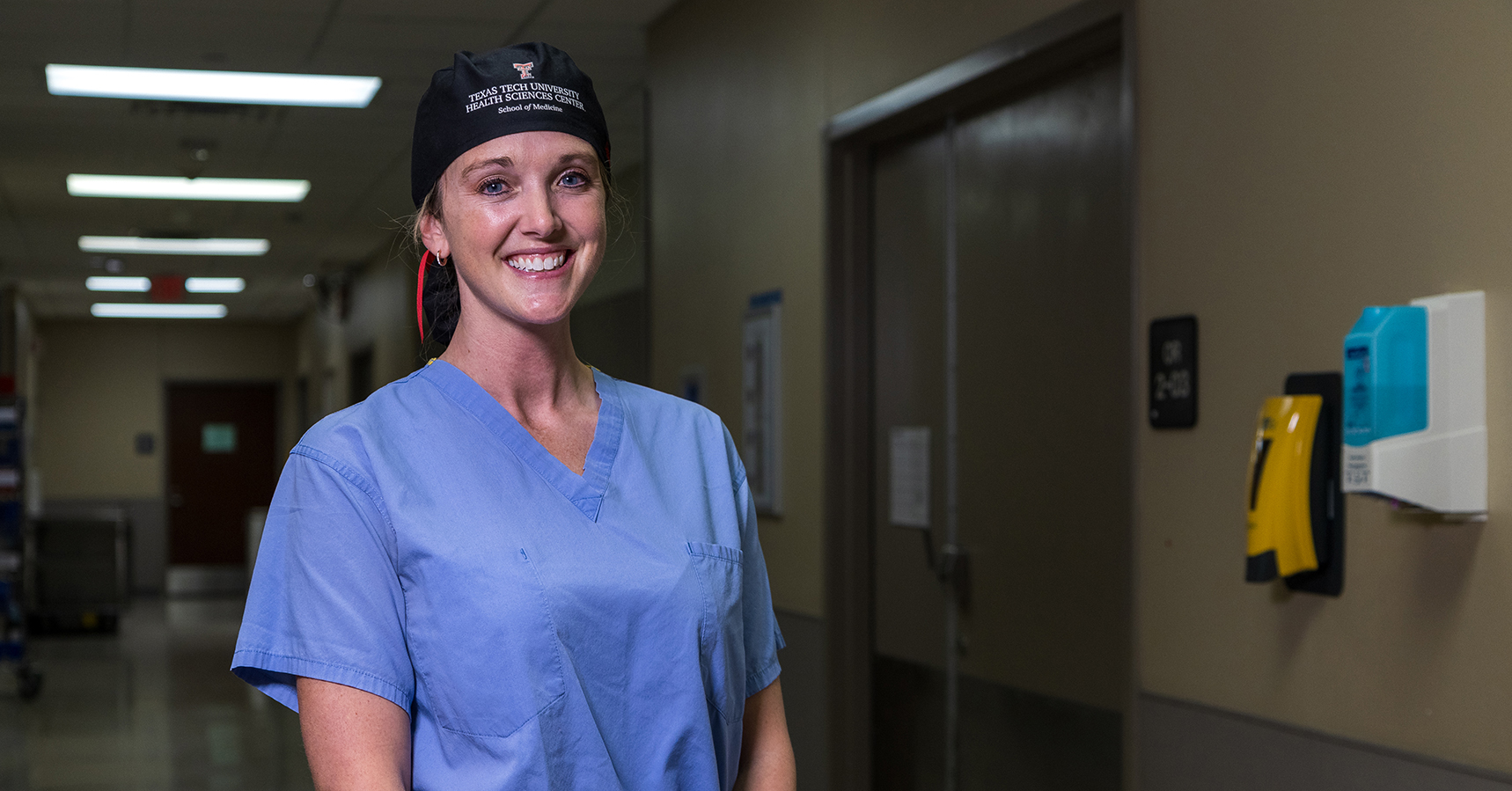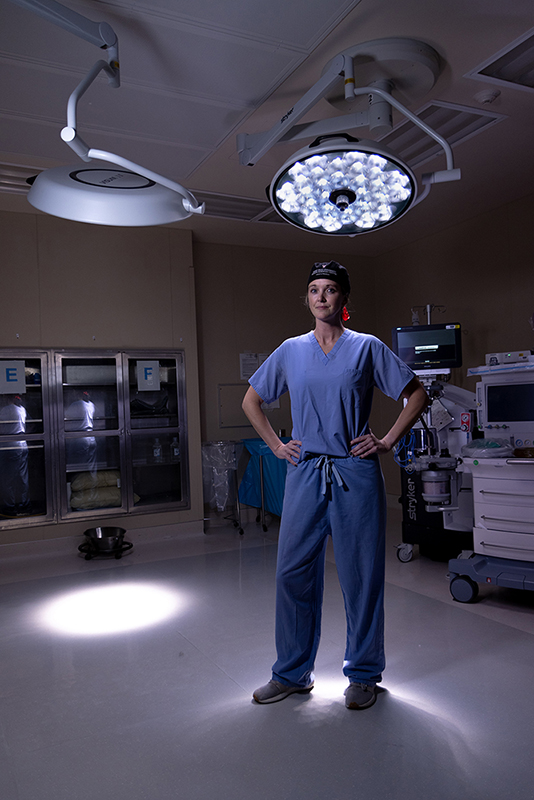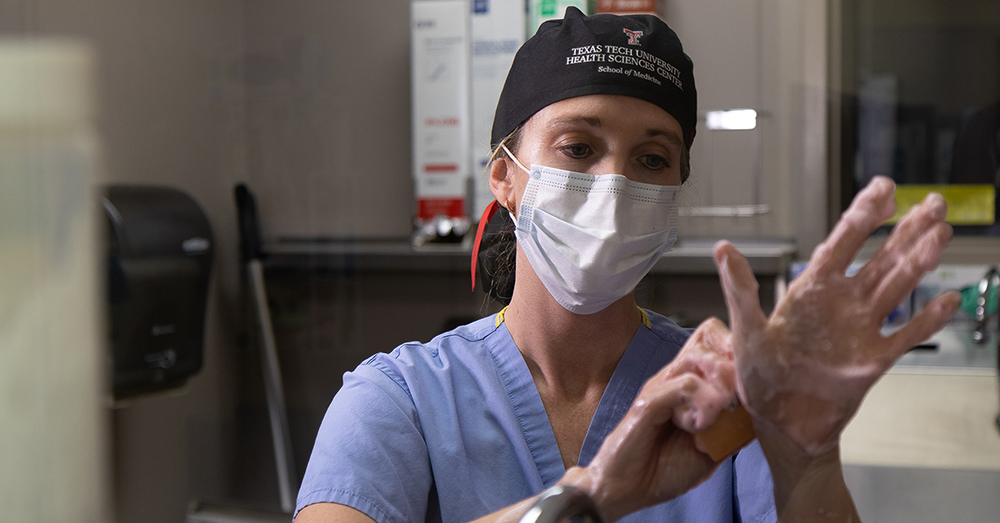TTUHSC Surgeon is a National Lead for Worldwide CovidSurg Collaborative
Group’s Report Addresses Surgery Backlog, Conditions Created by Pandemic

In 2013, the National Institute for Health Research (NIHR) established the GlobalSurg Collaborative, a network that has since grown to include more than 5,000 practicing surgeons from all corners of the planet. Through GlobalSurg, networks of local, state, national and international researchers have formed to analyze surgical disparities and outcomes. Their mission is to study and advance global surgery, a term used to describe a multidisciplinary field of health care that seeks to improve access to basic surgical procedures for the estimated five billion people worldwide who lack such access.
When the COVID-19 pandemic hit, some of the GlobalSurg members formed an umbrella group known as the CovidSurg Collaborative. Their mission is to disseminate good, evidence-based data across the world so hospitals and physicians can form safe surgical environments during the pandemic, establish plans for conducting safe surgeries after the pandemic and provide informed decision-making tools to be shared between the surgeon or anesthesiologist and the patient.

Brittany Bankhead-Kendall, M.D., M.S., an assistant professor of surgery at the Texas Tech University Health Sciences Center (TTUHSC) School of Medicine, is one of CovidSurg Collaborative’s U.S. National Leads. She said the group formed quickly using social media platforms such as Facebook, Twitter and others.
“We worked through the WhatsApp messenger across country borders to form a dissemination committee, and we kept working until we had national representatives from almost all countries across the world,” Bankhead-Kendall said. “Everyone was really hungry for information and for good, quality research, which is what brought us all together.”
Bankhead-Kendall, who also was selected to be a CovidSurg Hospital Lead and is a member of the CovidSurg Dissemination Committee, said the group began sharing information about the disease at the very start of the pandemic. For example, CovidSurg collaborators from China and Italy reported early on they were seeing an uncommon type of intestinal perforation in COVID-19 patients.
“This was something we were then able to watch for and found to absolutely be true in the United States as well,” Bankhead-Kendall said.
As the pandemic continued its intrusion into every aspect of daily life, all health care services, including surgery, have felt the impact. Bankhead-Kendall said she was surprised to learn that an estimated 28.4 million surgeries worldwide were canceled during a 12-week span during the first wave of the pandemic.
“Unfortunately, this includes 2.3 million cancer operations,” she added.
To help address the backlog that exists and will continue to exist after the pandemic ends, the CovidSurg Collaborative recently published a report titled, “Recovery of Surgical Services in the Post-Pandemic Era: Surgery 2020-2025.” Bankhead-Kendall said the report’s overarching message is maximizing the value of surgery across the world.
“When COVID-19 first hit each of our countries, elective and non-urgent surgeries — and sometimes even emergent surgeries, which is where the patient has a life-threatening condition — were stopped and occasionally even managed non-operatively in a patient population that would have otherwise been managed operatively,” Bankhead-Kendall explained. “This created a huge backlog in number of cases to be performed, and this is in addition to a large influx of patients who will be presenting with advanced surgical disease. This could include an appendicitis that was more inflamed or perforated instead of caught early, or a cancer that festered too long and is now at a higher stage.”
As COVID-19 continued to infiltrate communities and hospitals, practitioners observed that patients who have symptomatic COVID-19 have worse surgical outcomes than those without the disease. With that in mind, Bankhead-Kendall said the CovidSurg group began investigating ways to safely perform surgery in a COVID-19 environment.

When a hospital is “hot,” or inundated with COVID-19 patients, the report suggests setting up a segregated “cold” surgical unit for non-COVID-19 patients so their risk of contracting the disease is minimized. Once the hospital’s COVID-19 patient surge subsides, or the hospital becomes “cold,” the report suggests establishing a “hot” unit or floor to house COVID-19 patients and a “cold” surgical unit for non-COVID-19 patients.
“Finding a way to safely do surgery on patients in hospitals or units where they are not at risk or have a lesser risk of catching COVID-19 is very important,” Bankhead-Kendall stressed. “Overall, this report aims to identify where we can do the most good for the largest number of surgical patients in the safest way possible.”
The CovidSurg report also showed that a patient diagnosed with COVID-19 at the time of surgery or during the first 30 days after surgery had a 24% mortality rate. Additionally, these patients had a greater than 50% chance of a requiring a ventilator unexpectedly or experiencing a major pulmonary or respiratory complication like pneumonia or ARDS (Acute Respiratory Distress Syndrome).
“This data revolutionized the way the world viewed surgery in the time of the COVID-19 pandemic,” Bankhead-Kendall said. “It was groundbreaking in the number of patients studied and the quick results that it brought us as we all struggled to understand the preoperative complications and risks that came from a COVID-19 diagnosis as it related to surgery.”
Though many of the report’s findings address the state of surgery during the pandemic, it also shows there will continue to be a significant backlog of non-emergent surgeries and preventative screening procedures. In addition to the postponements and cancellations made by the hospital, Bankhead-Kendall said the backlog also includes people who are simply too scared to come to the hospital or visit the doctor because of COVID-19 fears.
When the pandemic subsides, Bankhead-Kendall anticipates seeing patients with advanced stages of cancers and surgeries that will be technically more difficult to perform due to the delayed nature of their presentations. Because COVID-19 also has become a surgical disease, she said practitioners are seeing how long-term complications like pneumothorax (collapsed lung) and intestinal perforations and fistula (incorrect connections) are possible and will require their own surgical management. Her suggestion for patients is to thoroughly discuss options and procedures with their physician prior to making any surgery decisions.
“At the crux of every good surgeon-patient relationship is a healthy discussion about informed decision-making,” Bankhead-Kendall emphasized. “Surgery will not, for the foreseeable future, look anything like it has in the past. Trusting your surgeon to take the information we have made available and combining it with their own surgical expertise will be paramount.”
Related Stories
Celebrating Veterans: TTUHSC’s General Martin Clay’s Legacy of Service and Leadership
From his initial enlistment in the Army National Guard 36 years ago to his leadership in military and civilian health care management roles, Major General Martin Clay’s career has been shaped by adaptability, mission focus and service to others.
Texas Tech University Health Sciences Center School of Nursing Named Best Accelerated Bachelor of Science in Nursing Program in Texas
The TTUHSC School of Nursing Accelerated Bachelor of Science in Nursing (BSN) program has been ranked the No. 1 accelerated nursing program in Texas by RegisteredNursing.org.
TTUHSC Names New Regional Dean for the School of Nursing
Louise Rice, DNP, RN, has been named regional dean of the TTUHSC School of Nursing on the Amarillo campus.
Recent Stories
The John Wayne Cancer Foundation Surgical Oncology Fellowship Program at Texas Tech University Health Sciences Center Announced
TTUHSC is collaborating with the John Wayne Cancer Foundation and has established the Big Cure Endowment, which supports the university’s efforts to reduce cancer incidence and increase survivability of people in rural and underserved areas.
TTUHSC Receives $1 Million Gift from Amarillo National Bank to Expand and Enhance Pediatric Care in the Panhandle
TTUHSC School of Medicine leaders accepted a $1 million philanthropic gift from Amarillo National Bank on Tuesday (Feb. 10), marking a transformational investment in pediatric care for the Texas Panhandle.
Texas Tech University Health Sciences Center Permian Basin Announces Pediatric Residency Program Gift
TTUHSC Permian Basin, along with the Permian Strategic Partnership and the Scharbauer Foundation, Feb. 5 announced a gift that will fund a new pediatric residency.
